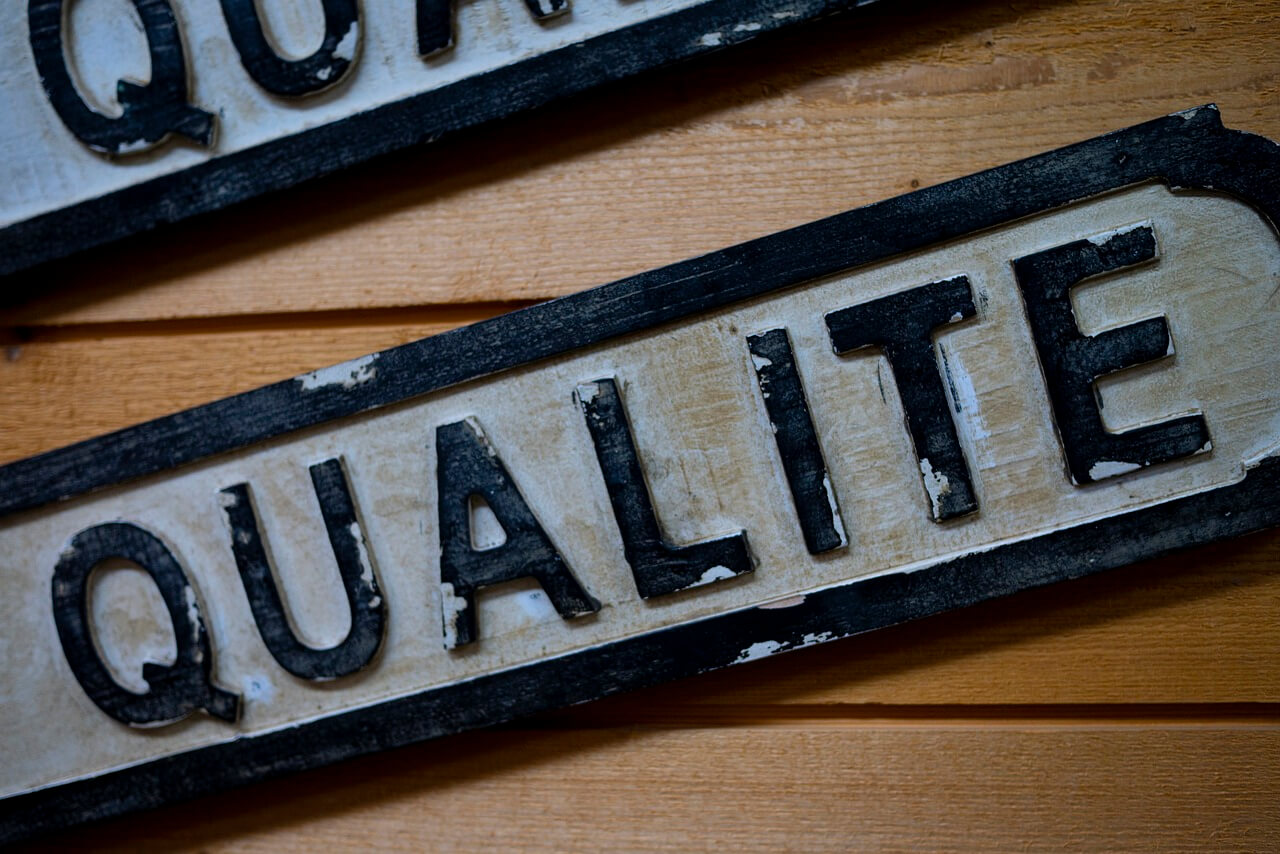Certifications in Stainless Steel Manufacturing
Certifications and standards are the bedrock of quality assurance in the stainless steel manufacturing industry. ASTM (the American Society for Testing and Materials) and ISO (the International Organization for Standardization) provides quality assurance certifications.
Certifications are formal declarations by an accredited body that a product, process, or system complies with specific requirements, often set forth in standards. Standards, on the other hand, are documents that outline precise specifications and guidelines for the design, manufacture, or performance of a particular product or process.
Looking for a reliable stainless steel supplier with ASTM and ISO certifications? Contact us today at 714-632-0140 or toll-free at 800-854-6777.
ASTM Standards for Stainless Steel
Discuss the American Society for Testing and Materials (ASTM)
Founded in 1898, ASTM has continually worked towards the advancement of industry practices and the assurance of quality and safety.
Explore Specific ASTM Standards Relevant to Stainless Steel
Some key ASTM standards relevant to stainless steel in aviation include:
ASTM A240/A240M – Standard Specification for Chromium and Chromium-Nickel Stainless Steel Plate, Sheet, and Strip for Pressure Vessels and for General Applications: This standard outlines the requirements for stainless steel plates, sheets, and strips used in pressure vessels and general applications. It specifies material grades, chemical compositions, and mechanical properties.
ASTM A276/A276M – Standard Specification for Stainless Steel Bars and Shapes: This standard covers stainless steel bars and shapes used in various applications. It provides specifications for chemical composition, mechanical properties, and dimensions, ensuring consistency in product quality.
ASTM A479/A479M – Standard Specification for Stainless Steel Bars and Shapes for Use in Boilers and Other Pressure Vessels: This standard focuses on stainless steel bars and shapes intended for use in boilers and pressure vessels. It outlines requirements for material properties, heat treatment, and chemical composition.
ASTM F899 – Standard Specification for Stainless Steels for Surgical Instruments: While primarily related to the medical field, this standard highlights the importance of stainless steel quality and composition in applications where precision and corrosion resistance are critical.
Highlight the Significance of Adhering to ASTM Standards in Aviation
Adhering to ASTM standards in aviation is of paramount importance for several reasons:
Safety: ASTM standards ensure aviation components safety.
Interoperability: ASTM standards promote compatibility and interchangeability of components from different manufacturers, reducing the risk of integration issues and ensuring the seamless operation of aircraft systems.
Regulatory Compliance: Many aviation regulatory authorities, such as the Federal Aviation Administration (FAA) in the United States, mandate compliance with specific ASTM standards.
Consistency: ASTM standards provide a consistent and well-defined framework for stainless steel production and testing.
ISO Standards for Stainless Steel
ISO Standards Pertinent to Stainless Steel
ISO has developed a variety of standards that are pertinent to different aspects of stainless steel production, quality assurance, and safety. Some key ISO standards relevant to stainless steel include:
ISO 9001 – Quality Management System: ISO 9001 sets the framework for quality management systems in manufacturing and service industries. While not specific to stainless steel, adherence to ISO 9001 ensures that a manufacturer maintains stringent quality control processes.
ISO 9001 – Quality Management System for Aviation, Space, and Defense Organizations (AS9100): This is a specialized extension of ISO 9001, tailored to the unique needs of the aviation, space, and defense industries.
ISO 3506 – Mechanical Properties of Corrosion-Resistant Stainless Steel Fasteners: This standard specifies mechanical properties and requirements for corrosion-resistant stainless steel fasteners, which are critical components in aviation and many other industries.
ISO 15510 – Stainless Steels: ISO 15510 provides a comprehensive overview of stainless steel grades and their chemical compositions.
How Compliance with ISO Standards Enhances Product Quality and Safety
Compliance with ISO standards enhances product quality and safety in several ways:
Consistency: ISO standards establish uniform criteria, ensuring that stainless steel products consistently meet specific quality and performance requirements.
Interoperability: ISO standards facilitate the interoperability of stainless steel components across different manufacturers and regions.
Safety: ISO standards often include safety-related requirements that are critical in industries like aviation, where safety is paramount.
Regulatory Compliance: Many aviation regulatory authorities, such as the Federal Aviation Administration (FAA), recognize and require compliance with specific ISO standards.
Regulatory Compliance in Aviation
The aviation industry is one of the most heavily regulated sectors globally, and for good reason. Safety and reliability are paramount in aviation, where human lives are at stake. Aviation industry regulations and requirements include:
Federal Aviation Administration (FAA): In the United States, the FAA is the primary regulatory authority for civil aviation. It sets and enforces regulations covering aircraft design, manufacturing, maintenance, and operations. Compliance with FAA regulations is mandatory for all aspects of aviation in the U.S.
European Union Aviation Safety Agency (EASA): In Europe, EASA serves a similar role to the FAA, establishing and enforcing aviation safety regulations for EU member states.
International Civil Aviation Organization (ICAO): ICAO recommended practices for various aspects of aviation, including safety, security, and environmental protection.
Airworthiness Certification: Aircraft and aircraft components must undergo rigorous airworthiness certification processes to ensure their safety and reliability. These certifications involve extensive testing, inspections, and compliance with specific standards.
Suppliers and Procurement
Responsibility of Suppliers in Providing Certified Stainless Steel Products
Supplier’s responsibilities include:
Quality Assurance: Suppliers must source, manufacture, or distribute stainless steel products that meet or exceed the required quality standards, such as ASTM or ISO.
Traceability: Suppliers should maintain meticulous records and traceability systems that track the origin and history of stainless steel materials and products.
Documentation: Suppliers must provide comprehensive documentation, including certificates of compliance, material test reports, and other relevant certifications, to verify that their stainless steel products meet the required standards.
Product Testing and Inspection: Suppliers should conduct rigorous testing and inspection procedures to verify the quality and properties of stainless steel products.
Continuous Improvement: Suppliers must maintain a commitment to continuous improvement in their processes and products.
Highlight the Role of Procurement Specialists in Ensuring Compliance
Procurement specialists, whether within an organization or as part of a procurement team, play a critical role in ensuring that the stainless steel products sourced meet certification and compliance requirements:
Specification and Requirement Analysis: Procurement specialists are responsible for analyzing the specific requirements and standards relevant to the stainless steel products needed for a project.
Supplier Assessment: Procurement specialists evaluate potential suppliers to ensure they have the capabilities and commitment to provide certified stainless steel products. This assessment includes reviewing supplier certifications, quality control processes, and track records of compliance.
Contractual Agreements: Procurement specialists draft contractual agreements that clearly outline the expectations and requirements for stainless steel products.
Quality Control and Inspection: Throughout the procurement process, specialists may conduct quality control checks and inspections to verify that the received stainless steel products meet the specified certifications and compliance standards. They may also coordinate third-party inspections when necessary.
Documentation and Record-Keeping: Procurement specialists maintain meticulous records of all documentation related to the purchased stainless steel products, including certificates of compliance, test reports, and correspondence with suppliers.
Challenges and Considerations in Stainless Steel Certification and Compliance
Address Challenges in Achieving and Maintaining Certifications
Achieving and maintaining stainless steel certifications can be a complex endeavor, particularly in industries like aviation where the stakes are high. Here are some of the key challenges faced in this process:
Evolving Standards: Stainless steel standards, whether from ASTM, ISO, or industry-specific bodies, are subject to updates and revisions. Staying current with these changes and ensuring that products comply with the latest standards can be challenging.
Supply Chain Complexity: In global supply chains, stainless steel materials may pass through multiple suppliers and manufacturers before reaching the end user.
Cost of Certification: Obtaining and maintaining certifications can be costly, both in terms of direct expenses and the investment of time and resources.
Consistency across Batches: Ensuring consistency in the quality and properties of stainless steel products across different batches can be challenging.
Auditing and Compliance Checks: Regular audits and compliance checks are necessary to ensure that products continue to meet certification requirements. Preparing for and undergoing these audits can be resource-intensive.
Global Compliance: In industries with international operations, ensuring compliance with varying regional and national regulations can be complex.
Discuss the Importance of Ongoing Monitoring and Compliance
Ongoing monitoring and compliance are critical aspects of maintaining the integrity of stainless steel certifications and ensuring product quality and safety:
Quality Assurance: Continuous monitoring allows organizations to identify and address deviations from certification requirements promptly.
Traceability: Ongoing monitoring ensures that traceability systems are consistently maintained.
Regulatory Compliance: Regulatory authorities, such as the FAA or EASA, often require ongoing compliance with specific standards.
Continuous Improvement: Monitoring and compliance efforts can lead to continuous improvement in processes and products. By identifying areas where products may fall short of standards, organizations can implement corrective measures and enhance their quality control processes.
Customer Confidence: Demonstrating ongoing compliance with certification and monitoring standards instills confidence in customers and stakeholders.
Emphasize the Role of Training and Education
Training and education are key components of achieving and maintaining stainless steel certification and compliance:
Employee Training: Organizations should invest in training programs for employees involved in the manufacturing, procurement, and quality control of stainless steel products.
Supplier Education: Suppliers should also be educated about the specific certification and compliance requirements applicable to stainless steel products.
Continuous Learning: Given the evolving nature of standards and regulations, organizations and individuals involved in stainless steel certification and compliance must engage in continuous learning and stay updated on the latest developments in the field.
Visit Friend Metals to explore our extensive range of stainless steel solutions.

